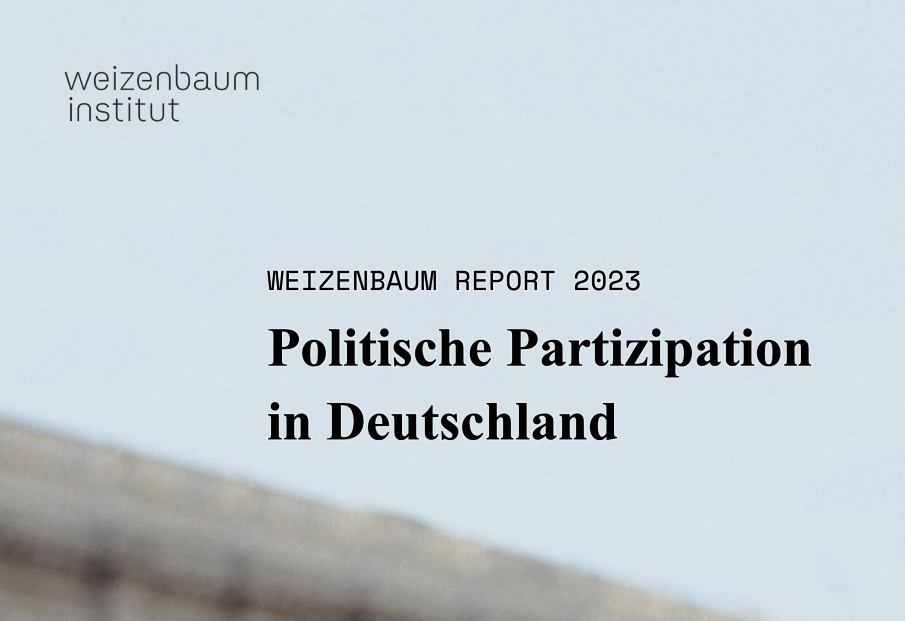
Political Participation: Digital Media Mitigate Social Disparities
04/17/2023Russia's War in Ukraine, energy and climate crises, and protests in Iran – What did political engagement resemble in Germany in 2022, and how has political participation evolved since the cessation of COVID-19 restrictions?
Since 2019, the Weizenbaum Panel has conducted an annual comprehensive population survey on political participation and digitization. This year's study, which is now available in English, indicates that online engagement is gaining significance, concurrently diminishing the relevance of social status in political participation.
Active engagement in political processes necessitates resources and time, frequently accompanied by specialized skills or access. Consequently, it is scarcely astonishing that across all facets of political participation, those with higher social standing consistently exhibit greater activity than their socially disadvantaged counterparts. This holds true not only for activities such as donations or various forms of boycotts and buycotts, which require access to corresponding resources, but also for conventional forms of participation, including party membership, political mobilization efforts, or voluntary work.
Nonetheless, traditional modes of participation have exhibited a continuous decline over the years, as evidenced by the long-term study conducted by the 'Weizenbaum Panel.' In contrast, contemporary digital forms of engagement, such as online petitions, sharing and commenting on political content on social media, or reporting hate speech and false information, have remained relatively stable. In these digital acts of moral courage, social disparities are notably less pronounced.
Political considerations also wield significant influence in offline everyday decisions. Approximately half of the respondents base their purchasing choices on political, ethical, or social factors.
The researchers also explored whether authoritarians tend to engage more or less in politics, a phenomenon referred to as 'dark participation.' In reality, individuals with anti-democratic inclinations share fewer petitions, exhibit significantly lower activity on social media, and lag behind in other modes of political engagement, contrary to their prominent presence in media discussions or on social platforms.
Lastly, the study delved into respondents' perspectives regarding the Internet, social media, and artificial intelligence. According to the Weizenbaum Report 2023, there is a sense of ambivalence within the population towards AI and social media. While the Internet and its societal utilization have become entrenched and are generally viewed favorably by the majority of the German population, one-third of respondents harbor negative sentiments toward social media. In assessing artificial intelligence, people's attitudes are marked by uncertainty and indecision.
Read the full report in English here.